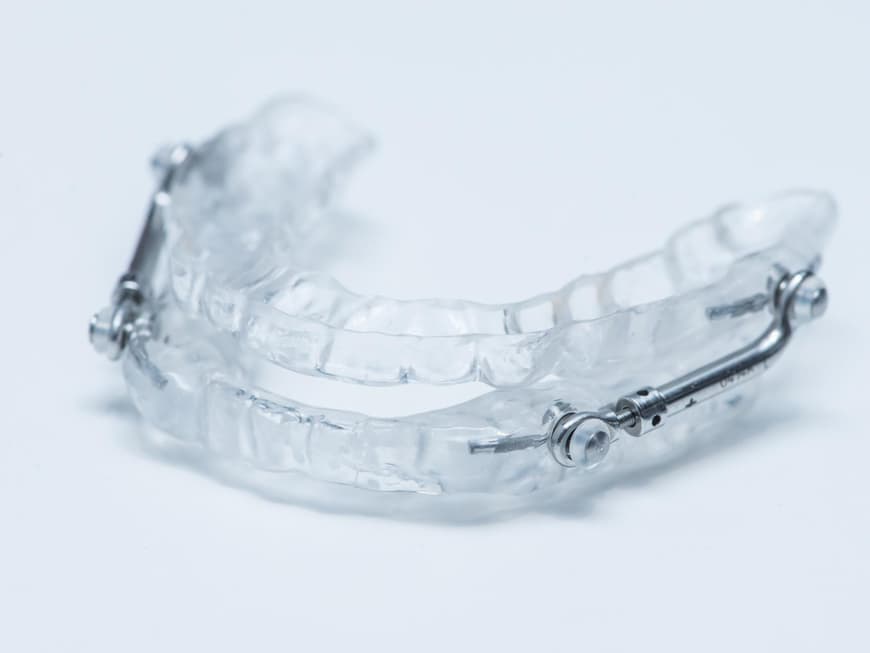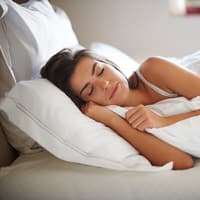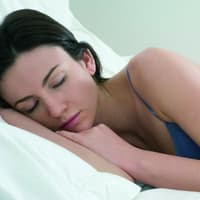Around 58 percent of men under the age of 40 do it, and the figure rises to a whopping 73 percent over 40. It is the sleep killer par excellence, as top snorers reach a volume of around 90 decibels - the equivalent of the rattling of a jackhammer. While the person sleeping next door can't sleep a wink, the person making the noise usually doesn't even notice. Only in the morning: dry mouth, sweating, drowsiness, difficulty concentrating, less desire for sex and headaches. These are the consequences that a snorer has to endure. So what can stop annoying snoring?
What causes the noises during sleep?
Anatomical features such as large tonsils, a narrow throat or a small lower jaw can cause snoring. However, it is usually triggered by relaxed tongue and throat muscles during sleep. The uvula and soft palate flutter back and forth in the air we breathe - this is how the nerve-wracking noises are produced. The tongue also plays a role. It is attached far back in the mouth: This so-called base of the tongue can slip backwards during sleep. The breath then squeezes loudly through the remaining gap.
Is snoring actually dangerous?
Apart from the problems mentioned at the beginning, normal snoring is harmless. However, two to eight percent of those affected have breathing interruptions, known as sleep apnea. Unfortunately, you don't realize yourself whether you are suffering from this - only an attentive bed companion or perhaps even better a snoring expert can determine this. This is because these apneas are not without consequences: your breathing can stop for up to a minute. The risk of stroke and heart attack increases. What's more, anyone who has to constantly gasp for air during the night is on non-stop alert and therefore releases the stress hormone cortisol. As a result, those affected hardly have any deep sleep phases. Restful sleep is therefore not possible. The next day, the person feels correspondingly exhausted.
How can you stop annoying snoring?
Sometimes it is enough to change your sleeping position to stop snoring. Don't go to bed hungry or with a full stomach. You should avoid a nightcap as well as sedatives and sleeping pills, as they relax the airway muscles even more. And there are a number of aids.
Nose plasters & co. - these remedies promise relief from snoring
These methods are currently available on the market to stop annoying and loud snoring:
- Chin strap: It stabilizes the lower jaw, the mouth remains closed. The wearer must breathe through the nose. Various suppliers, from approx. 5 euros.
- Acupressure ring: It presses lightly on two acupressure points on the finger for the nose and throat region. "Antisnor", approx. 30 euros.
- Snoring pillow: Inside is an inflatable air cushion, it is designed to keep the sleeper permanently in the low-snoring lateral position. Various suppliers, from approx. 25 euros.
- Splint: This is inserted between the lips and front teeth and prevents breathing through the mouth, even when it is open. Various providers, from approx. 25 Eur.
- Nasal butterfly: improves nasal breathing, especially for side sleepers. "Nasanita", approx. 25 euros.
- Nasal strips: They increase the air flow - oxygen intake and nasal breathing are improved. Various suppliers, from approx. 5 euros.
- Snoring mask: This is prescribed by the doctor in particularly severe cases of apnea and blows air into the nose. Various providers, from approx. 700 euros.








